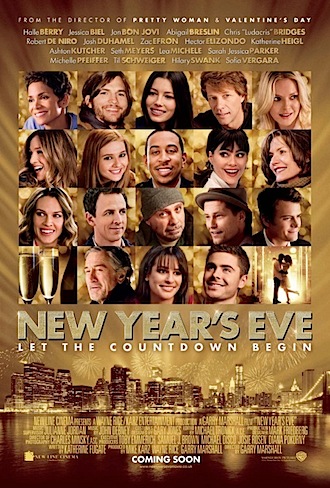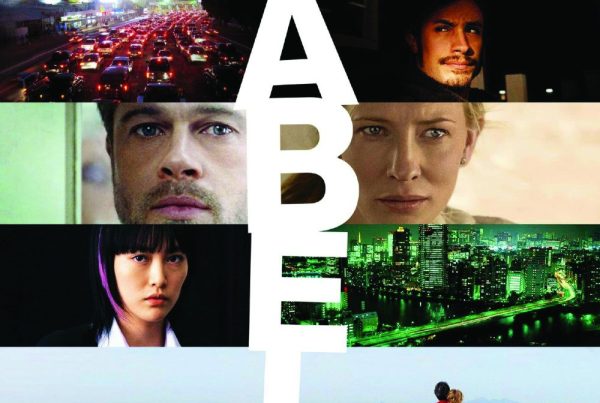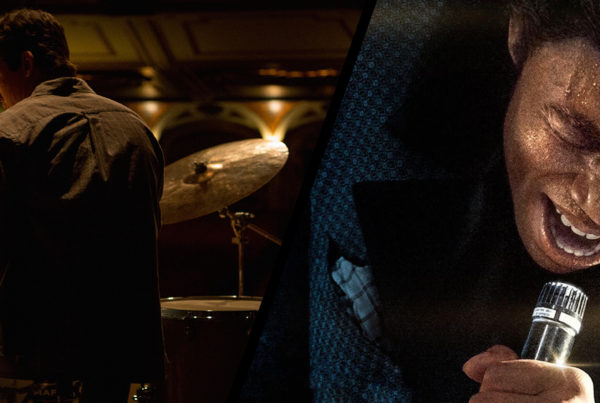For years now I’ve been fighting a single-handed defence of the later career of Robert De Niro (no defence, of course, being necessary for the early career which featured Mean Streets, Taxi Driver and The Deer Hunter). This defence has several arguments. Firstly, his decline hasn’t been nearly as pronounced – or as strange – as Al Pacino’s. Secondly, he was making some unusual decisions even during the eighties and, frankly, one Harry Tuttle – the renegade central heating engineer in Brazil – or foul-mouthed bail bondsman Jack Walsh (Midnight Run) will get you a free pass for an awful lot of We’re No Angels.
In the nineties, too, he would make choices that fans of Raging Bull and King of Comedy would think were beneath him – Mad Dog and Glory, Frankenstein – but also pull out Wag the Dog and Jackie Brown. It’s been clear for a while now that De Niro is something of a workaholic – and an actor who waits for projects as good as Goodfellas is an actor who doesn’t work all that often.
Plus – and I’m speculating as Mr De Niro doesn’t speak of such matters – he would appear to enjoy sending himself and his image up rather more than his fans would expect. Hence his pirate in drag in Stardust and Fearless Leader in Rocky and Bullwinkle – not to mention the Focker pictures which he now owns. Through all of these chapters – right up until recent films like Machete and What Just Happened – regardless of what was going on around him you could always believe a De Niro character to be who he says he is. The talent – and the craft – was intact.
Until now.
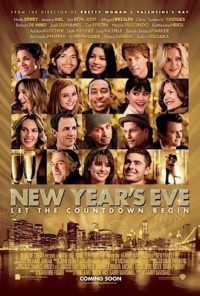 I can’t defend him anymore, I’m afraid. New Year’s Eve is just so far beneath him – and his performance is so lazy – that I don’t know if anything can bring him back. NYE is a follow-up/cash-in on last last year’s surprise smash hit Valentine’s Day in which an ensemble of stars portray ordinary people in several linked romantic (or maudlin) stories taking place around the titular event.
I can’t defend him anymore, I’m afraid. New Year’s Eve is just so far beneath him – and his performance is so lazy – that I don’t know if anything can bring him back. NYE is a follow-up/cash-in on last last year’s surprise smash hit Valentine’s Day in which an ensemble of stars portray ordinary people in several linked romantic (or maudlin) stories taking place around the titular event.
Director Garry Marshall (Pretty Woman) has struck a formula here that can run and run. Unfortunately. Katherine Heigl plays a caterer working an event where her rock star ex-boyfriend (Jon Bön Jovi) will be playing. Meanwhile Hilary Swank plays the boss of the Times Square Business Alliance responsible for that inexplicable “dropping the ball” ritual which mesmerises Americans every year.
De Niro is a lonely dying man, nursed by Halle Berry and doctored by a porky Cary Elwes. His final wish is to see the ball drop for the last time. Yes, the ball drop. That manufactured tradition, paid for by corporate America, fronted by talentless manufactured celebrities like Dick Clark and Ryan Seacrest, is what a dying man wants more than anything.
Like most disposable Hollywood artifacts these days it’s paid for by product placement and the most insulting would have to be the giant close-up of an ad for the new Sherlock Holmes, produced by the same company and opening in less than a month. If you’ve paid money to watch New Year’s Eve you’ve been suckered.
 The First Grader is more down to earth. Based on the true story of an elderly man who takes the Kenyan government’s offer of free eductaion for all literally, it’s also a quick history of post-WWII colonialism and its legacy. Oliver Litondo plays the 84 year old Maruge, tortured and imprisoned by the British in the 1950s for (justified) insurrection.
The First Grader is more down to earth. Based on the true story of an elderly man who takes the Kenyan government’s offer of free eductaion for all literally, it’s also a quick history of post-WWII colonialism and its legacy. Oliver Litondo plays the 84 year old Maruge, tortured and imprisoned by the British in the 1950s for (justified) insurrection.
Flashbacks to that terrible time balance the cuteness of the school scenes, but there’s a shadow over the present too. Tribal rivalries still dictate political influence and not everyone sees Maruge as a benign symbol of reconciliation. Not only is The First Grader a solid drama with a positive message, Kenya looks beautiful throughout.
 Right now I should probably thank God for bringing me Kevin Smith’s Red State and Alex Kendrick’s Courageous in the same week. What did I do to be so blessed? There’s potentially a decent-sized thesis to be written comparing the two but I only have a couple of hundred words left. In one a rogue church led by a charismatic but malevolent pastor (Michael Parks) leads his flock full of loony tunes against the Feds – in the form of John Goodman’s Alcohol, Tobacco and Firearms agents.
Right now I should probably thank God for bringing me Kevin Smith’s Red State and Alex Kendrick’s Courageous in the same week. What did I do to be so blessed? There’s potentially a decent-sized thesis to be written comparing the two but I only have a couple of hundred words left. In one a rogue church led by a charismatic but malevolent pastor (Michael Parks) leads his flock full of loony tunes against the Feds – in the form of John Goodman’s Alcohol, Tobacco and Firearms agents.
Smith’s progressive political sympathies are right there in the title but his human sympathies are fairly non-existent. Red State is a fairly brutal experience, leavened only by moments of cynical humour.
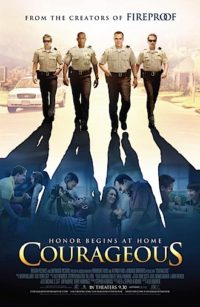 Courageous, on the other hand, is equally one-eyed and paints an equally unlikely portrait of America – one of mowed lawns, picket fences, no cursing and where the only trouble comes from black gang-bangers and their clichéd drug dealing. It’s a rare for a product of the faith-based sector of the industry to get a cinema release here but it’s big business in the US, so much so that Sony has a whole division devoted to mining it.
Courageous, on the other hand, is equally one-eyed and paints an equally unlikely portrait of America – one of mowed lawns, picket fences, no cursing and where the only trouble comes from black gang-bangers and their clichéd drug dealing. It’s a rare for a product of the faith-based sector of the industry to get a cinema release here but it’s big business in the US, so much so that Sony has a whole division devoted to mining it.
Four small town cops (and their token working class latino friend) make a pact to become better fathers which, you know, no one could possibly have a problem with if it didn’t come with so much old-fashioned scripture-based misogynistic small-minded baggage. There’s a good film to be made about fatherhood and taking responsibility but Courageous demands and expects a theologically pure world view that leaves no room for other experiences of the world.
Printed in Wellington’s Capital Times on Wednesday14 December, 2011.

